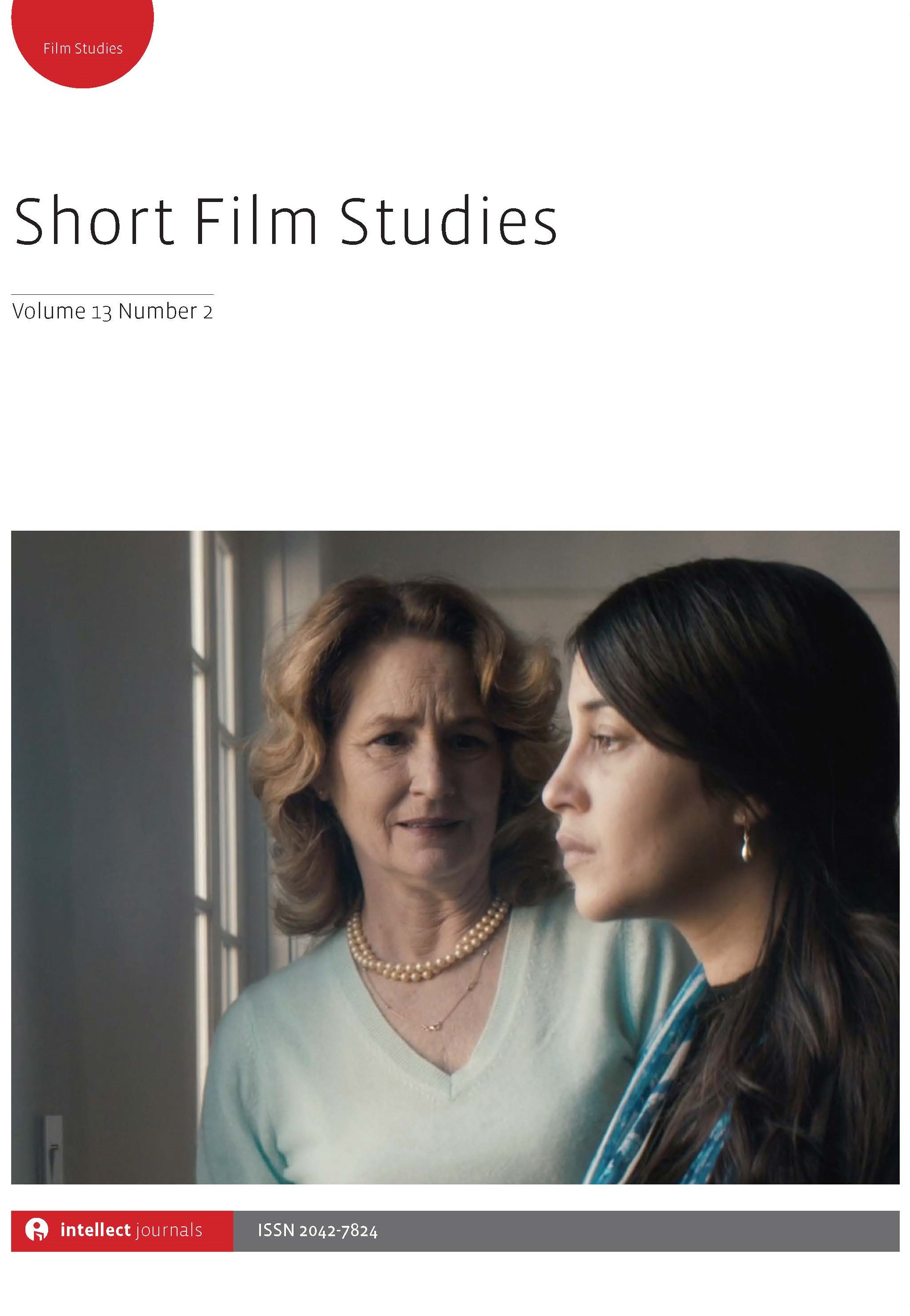- Home
- A-Z Publications
- Short Film Studies
- Previous Issues
- Volume 5, Issue 2, 2015
Short Film Studies - Volume 5, Issue 2, 2015
Volume 5, Issue 2, 2015
-
-
The Perfect Human: An avant-garde rebellion against Classical Hollywood style
More LessBy Derek DuboisAbstractThis article seeks to position Jørgen Leth’s The Perfect Human as an avant-garde challenge to Classical Hollywood film style as well as mine the film’s abstract appeal in its invention of new methodologies to generate meaning.
-
-
-
The fall of perfect man
More LessAbstractAlthough it seems loose and open-ended, The Perfect Human is a myth of modernism. It turns a ‘scientific’ look at Man and Woman into the thrill of voyeurism before it stops at a point of disturbing meta-consciousness: a fall in Pop Art Paradise.
-
-
-
Mimicking and mocking the aesthetics and philosophy of abstraction: The Perfect Human
More LessBy Paul CoatesAbstractThe Perfect Human may be read as using and subverting both 1960s aesthetic and age-old philosophical strategies of abstraction. Its awareness of differences of class, age and gender in particular serves to question aesthetic-philosophical assumptions concerning the interdependence of abstraction, ‘chromophobia’ and the idea of perfection.
-
-
-
A hunger for the human
More LessBy Naomi BeemanAbstractThe Perfect Human tempts a formalist reading: that the human is perfect when, thanks to the camera’s intervention, it does not appear in the world. Yet Leth’s aim is not to confirm this modern ideal of human self-sufficiency; rather, he exiles the human on film to expose our hunger for the world.
-
-
-
The Perfect Human and ‘modern cinema’
More LessAbstractWhile this film has been described as ‘modern’ in terms of its style and structure, approaching the film as ‘modern cinema’ in the terms defined by Richard Rushton allows us to consider the effects of its deliberate disjunction between ‘theatricality’ and ‘absorption’, or an exhibitionistic and a voyeuristic regime.
-
-
-
What is anthropological about The Perfect Human?
More LessAbstractJørgen Leth has classified The Perfect Human as an anthropological film. But is the film anthropological at all? This article explores Leth’s connections with anthropology and finds that he is more inspired by anthropological framing than he is by anthropological research methods.
-
-
-
Bean Cake, or the Emperor’s new clothes
More LessBy Mark LeFanuAbstractThis article examines the problems of anachronism involved when making a film in the present day as if it were produced in the 1930s. A distinction is drawn between homage and pastiche. The author concludes that in this case the experiment carried out by the filmmaker is both legitimate and successful.
-
-
-
Masculinity and femininity in Bean Cake
More LessAbstractSocial exchanges in Japan tend to be formal and follow prescribed rituals. In Bean Cake, gender representation reflects the rigid order of the Japanese society of 1933. But, as a story of pure love, aesthetically influenced by the cinema of Ozu, the film shows the feminine bedrock of that society.
-
-
-
Conflicting loyalties in pre-war Japan
More LessAbstractSet in Japan in 1933, Bean Cake deals with the workings of a totalitarian system in everyday life. This article discusses the significance of the film for modern Japanese historiography, especially its interpretation of the Japanese ‘totalitarian’ system. The article also examines how well the film presents such large political and historical questions both visually and as narrative.
-
-
-
Japanese masquerade in Bean Cake and ‘The Red Bridal’
More LessAbstractThis article will contextualize Bean Cake with the source of its plot, namely the Lafcadio Hearn short story ‘The Red Bridal’ (1894), both examples of Japanese masquerade by non-Japanese artists, and further discuss the appeal and risk for foreigners in the appropriation of Japanese aesthetics.
-
Most Read This Month


